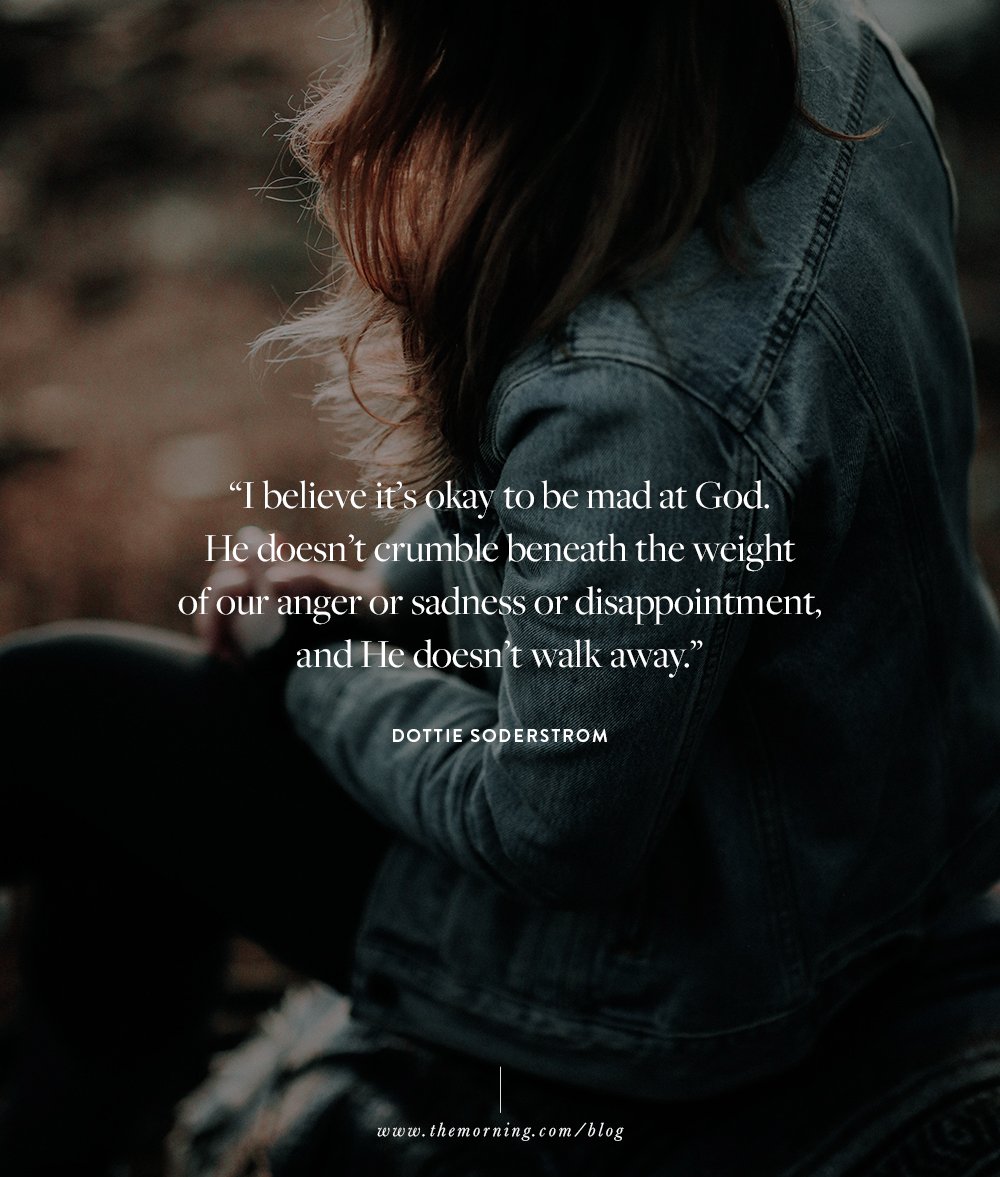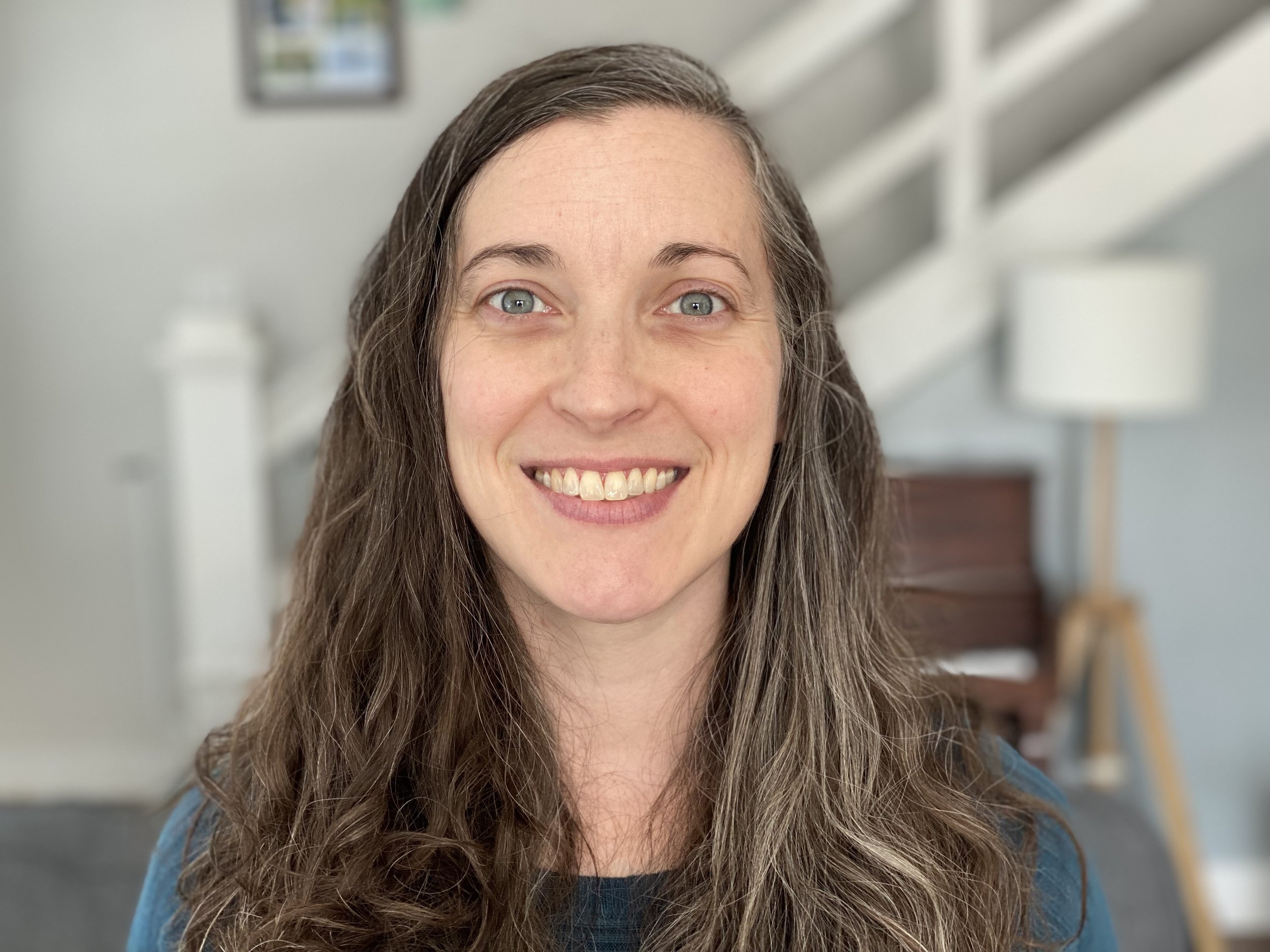Faith After Loss: Questioning, Grieving, and Finding Hope
by dottie soderstrom
Major life events have a unique way of altering our faith—sometimes opening small or large cracks of questioning, sometimes reinforcing stable and sturdy foundations to deepen what we believe. When these defining moments occur, we can often sense in the moment that we will never be the same. As cliché as that sounds, it’s true. Those of us who’ve experienced the loss of a child may see our life now in two distinct phases: who we were before our child died, and who we are now.
That’s how it felt to me when we experienced a pregnancy loss at eight weeks.
We named the baby we lost Isaac Shalom, in part because of the meanings of those names—laughter and peace—because we genuinely felt that the Lord was bringing those things into our life in the wake of our loss. But we chose this name also because of the wrestle within my heart connected to the biblical story of Abraham and Isaac. I’ve always struggled with the notion of a God who asks Abraham to sacrifice his son, only to provide an alternative at the very last minute. The story has always struck me as so very cruel to both father and son, regardless of how it turns out in the end. I felt at the time of our loss like God was asking me to lay down my son while failing to provide a ram in the thicket.
Akin to this perplexing biblical story, I knew that this loss would be something I would be putting on the altar often, as I struggled to understand why this loss came into our lives. I knew that it would cause me to question the roots of my faith and where my hope was stored. As I brought all my wondering to the feet of Jesus, I found not specific reasons or logic that helped explain why our baby died or how He would make beauty from these ashes, but I found the peaceful presence of the steady Savior who rescued my soul nearly thirty years ago. It was as though He was reminding me that He will always be with me even when I don’t understand, and He will never leave me during my seasons of doubt or confusion. We want answers, but often what we’re left with is mystery and His presence.
In the wake of loss, I think we often look for something or someone to blame, even if it means we blame ourselves. Like many women who lose a pregnancy, I wondered if something I had done triggered this loss. Because we were at the beginning of the coronavirus pandemic, I wondered if my very heightened pandemic-related anxiety could have been a contributing factor, as I stressed about grocery store shelves being bare and life generally no longer feeling safe since we knew so little about the virus at the time. It took time to let go of the idea that I was to blame and to forgive myself for thinking my body betrayed me by not holding onto little Isaac’s life.
Just as we blame ourselves, we may also blame God. Depending on our theology of suffering, we may try to distance ourselves from God if we believe He caused this death and pain. After all, how could we remain close to a god we believe orchestrated this type of shattering loss? What has helped me, instead, is recognizing that it’s the enemy, not God, who “steals, kills, and destroys” (John 10:10 NIV). The Lord mends and works all things for good (Romans 8:28 NIV), even when we don’t understand what that might look like. When we call out in our confusion, He hears, and He heals, and that doesn’t mean that everything makes sense.
Walking through grief has been a process of learning to trust and let go, leaning into the pain of not knowing. One of the ways I worked through my discomfort with uncertainty was talking to God about it openly during our season of loss and then waiting to sense what He said in reply. I felt like the Lord said to me, “This is your walking-on-water moment.” Just as Jesus called Peter to walk out toward Him on the Sea of Galilee, I felt like the Lord was asking me to step out in faith and keep my eyes focused on Him so that I wouldn’t sink. This also spoke to my heart as a reminder that the Lord would hold me up in my grief and do impossible things beyond what I could comprehend.
Whether the Lord speaks to us and brings to mind a specific story or scripture when we cry out to Him or if He feels silent or distant, I believe it’s okay to be mad at God. He doesn’t crumble beneath the weight of our anger or sadness or disappointment, and He doesn’t walk away. In fact, He’s angry, too, and sad, right alongside us. The deaths of our babies were never part of His plan; His plan is for life and redemption and holy resurrection.
The Lord also used music as a balm during my grief, specifically, the song “All That Lives Forever” by Steffany Gretzinger. She sings, “Death is just a door that leads us home to You,” and I felt comforted, thinking about our little one at home with Jesus, knowing we will see him someday. The song felt somber but also celebratory, and it was helpful to sit in my present sadness and simultaneously look ahead to an eternity without tears.
During a deep loss, we may find ourselves very naturally at a turning point in our faith. Do our earthquake moments cause our faith to crumble for good, or do they help us rebuild even stronger for the next tremor or aftershock? Some moments and days might feel like we are crumbling and will never be whole again, but others can be a reminder that God is working to hold us together and put everything in place, piece by broken piece.
Meet the Author: Dottie Soderstrom
Author Bio: Dottie Soderstrom holds a PhD in English from Auburn University. She lives in Marion, Indiana with her husband and children where they serve and minister at Indiana Wesleyan University and Kingdom Life Church. She can be found on Instagram @dotterstrom.
Connect with Author: @dotterstrom
free devotional
• daily scripture
• daily devotional
• daily prayer
in a simple format perfect for the grieving mom
free online community
find women understand this new normal and will provide hope and help as you navigate your way through it.





















![Life After Baby Loss: Returning to Work, Marriage, Faith & Mental Health [Part 02] | Episode 147 with Megan Gamboa](https://images.squarespace-cdn.com/content/v1/5d8e6e4f37fce41a1f622e01/1643312717792-C7H3C4SZU31U7R4RJ59J/life-limiting+diagnosis+prenatal+terminal+diagnosis+trisomy+13+baby+loss+grief+grieve+christian+carrying+to+term+medical+system+advocate+Megan+Gamboa-1.jpg)
![Life-Limiting Diagnosis (Trisomy 13), Navigating the Medical System & Advocating for Her Son[Part 01] | Episode 146 with Megan Gamboa](https://images.squarespace-cdn.com/content/v1/5d8e6e4f37fce41a1f622e01/1642621838535-4FKJ8M43DRFKLV80DFYR/life-limiting+diagnosis+prenatal+terminal+diagnosis+trisomy+13+baby+loss+grief+grieve+christian+carrying+to+term+medical+system+advocate+Megan+Gamboa-1.jpg)










